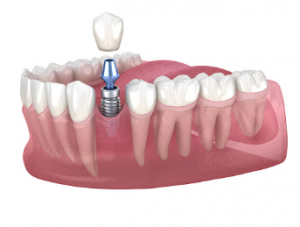What Do Dental Implants Do?
The procedure of undergoing dental implant surgery is not as complicated as many people may think. A general anaesthetic is rarely required, and nervous patients about the procedure are given sedatives. A general anaesthetic is reserved for the most complex cases, such as facial reconstruction. Patients should follow their post-op instructions carefully, as your dentist may recommend soft foods for a few days. In addition, smokers may be advised to stop smoking, negatively affecting the implants. Afterwards, the sutures will be removed, and your dentist can monitor the healing of the gums and check for infection or proper growth.
 After undergoing dental implants adelaide surgery, your smile will look brighter. You will be proud to show off your new smile, and you will feel confident that you’re the type of person who has a beautiful, healthy smile. You will also feel more comfortable eating and laughing without pain, which is important for social situations. Ultimately, your implants will improve your life. So, why wait? Contact an expert today! Don’t put off getting the dental implants you need.
After undergoing dental implants adelaide surgery, your smile will look brighter. You will be proud to show off your new smile, and you will feel confident that you’re the type of person who has a beautiful, healthy smile. You will also feel more comfortable eating and laughing without pain, which is important for social situations. Ultimately, your implants will improve your life. So, why wait? Contact an expert today! Don’t put off getting the dental implants you need.
Dental implants are placed in the jawbone using local anesthesia. For patients who have advised a higher level of relaxation, you may opt for oral sedation. After the implants have been placed, a bone graft will be placed in the area to help the implant integrate with the jawbone. Implants may take anywhere from three to six months to integrate with your new tooth, depending on the condition of your gums. Your dentist will advise you on your specific situation and answer any questions you may have.
It would be best if you were healthy before having dental implants. It is because they are designed to resemble your original teeth. If performed by a qualified implant dentist, your new teeth should function as if you’d never lost them in the first place. However, you should still follow the post-operative instructions given by your dentist and brush and floss twice a day. In addition, you should also avoid tobacco products to ensure smooth healing of the mouth and implants.
In general good health, dental implants are a great choice. While the procedure itself is not painful, it does require a great deal of planning and preparation. Consider visiting the dentist a few times before you decide to proceed with the procedure. A thorough medical examination is necessary to ensure you are a good candidate for dental implants. If you have any chronic illness, this could interfere with healing. Smoking can also slow the healing process.
While dental implants are safe, there is always the risk of complications. Nonetheless, patients should avoid implants if they cannot properly chew or open their mouths. Occasionally, a gum infection may occur. If this is the case, it can cause serious problems, including difficulty in speaking, chewing, and opening your mouth. Symptoms of gum infection include persistent bad breath, swollen gums, new gaps in teeth, and pus. Moreover, many dental health insurers do not cover dental implant costs. You should check with your insurer’s financial department before beginning treatment, and your dentist may offer a payment plan.
Dental implants are posts made of titanium that are placed in the jawbone. Once implanted, they fuse with the jawbone, allowing the patient to have their new teeth in just a few months. Some patients may need more than one implant, but multiple implants are the best solution to missing several teeth. If you have healthy gums and surrounding teeth, you may prefer a full mouth or arch procedure. You will enjoy a beautiful, functional smile thanks to a dental implant regardless of your procedure.
Selecting the right type of implant for your needs is important. Several factors contribute to the success of dental implant treatment, including your personal medical history and the type of implant you choose. Dental implants are usually titanium, which resembles a natural tooth root. This metal is highly durable and can fuse with the bone over time. Once the implant is in the jawbone, it will bond with bone cells. Aside from titanium, other materials, such as zirconia, can be used for dental implants.





Comments are Disabled